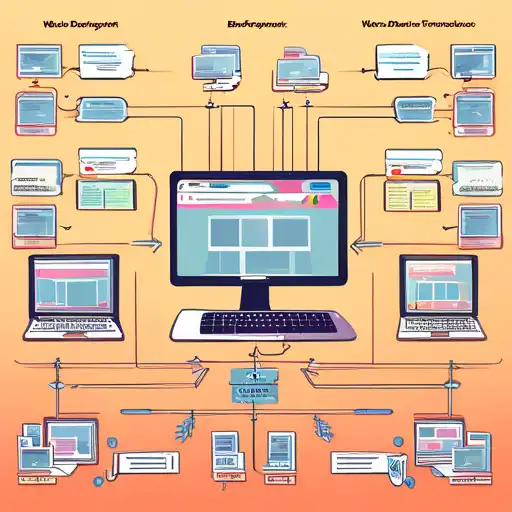Understanding Web Development Frameworks
In the ever-evolving world of web development, choosing the right framework can be a daunting task. With a plethora of options available, each promising to be the best, how do you decide which one is right for your project? This guide aims to demystify the process, helping you make an informed decision based on your project's needs, your team's expertise, and the long-term maintainability of your code.
Frontend vs. Backend Frameworks
First, it's essential to understand the difference between frontend and backend frameworks. Frontend frameworks, such as React, Angular, and Vue.js, are designed to create interactive user interfaces. On the other hand, backend frameworks like Django, Ruby on Rails, and Express.js handle server-side operations, database interactions, and application logic.
Key Factors to Consider
When selecting a web development framework, consider the following factors:
- Project Requirements: The nature of your project significantly influences the choice of framework. For instance, a single-page application (SPA) might benefit from a frontend framework like React or Vue.js.
- Community and Support: A vibrant community and extensive documentation can be invaluable resources for troubleshooting and learning.
- Performance: Evaluate the performance benchmarks of the framework to ensure it meets your application's needs.
- Scalability: Consider whether the framework can scale with your project as it grows.
Popular Web Development Frameworks in 2023
Here's a look at some of the most popular web development frameworks this year:
- React: A JavaScript library for building user interfaces, known for its virtual DOM feature for efficient updates.
- Angular: A platform for building mobile and desktop web applications, offering a comprehensive solution.
- Vue.js: A progressive framework for building UIs, designed to be incrementally adoptable.
- Django: A high-level Python web framework that encourages rapid development and clean, pragmatic design.
- Ruby on Rails: A server-side web application framework written in Ruby, emphasizing convention over configuration.
Making the Right Choice
Ultimately, the right web development framework depends on your specific needs, goals, and constraints. Experiment with a few options, consider the learning curve, and think about the future maintenance of your project. Remember, the best framework is the one that allows you to build your application efficiently and effectively, without unnecessary complexity.
For more insights into web development, check out our web development tips section.
